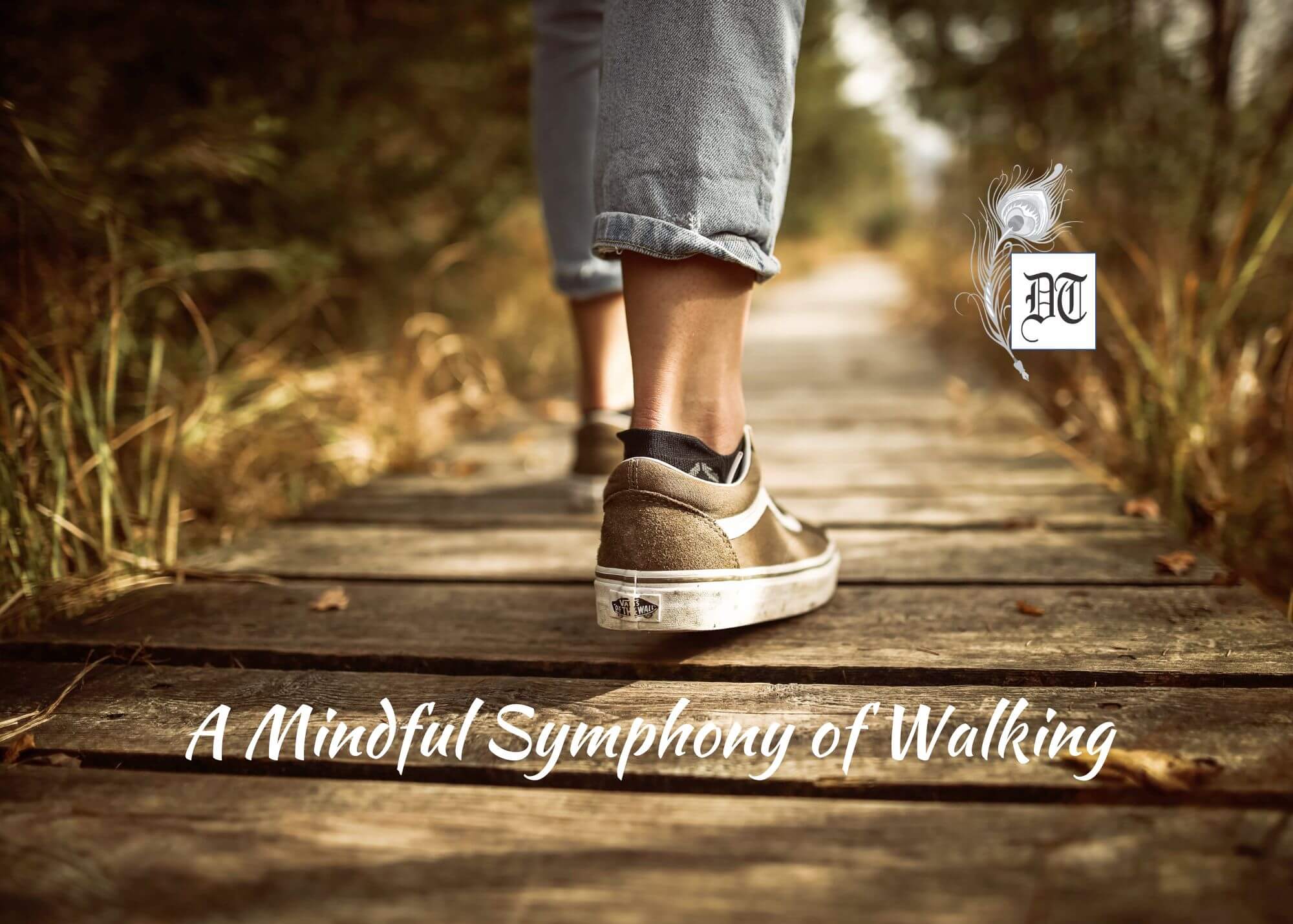Dr Madhuri deliberates on the benefits of walking, stating that it enhances mental clarity, creativity, and soul nourishment; nature offers solace – exclusively for Different Truths.

The good things aren’t a movie. There isn’t enough to make a reel. The good things are a poem barely longer than a haiku. In fact, nothing can be more luxurious and refreshing than a walk. And so, I don’t lose my desire to walk in any weather – crisp or languorous. I personally feel there is a curious link between the mind and the feet.
Great writers could transfer the quicksilver of consciousness into paper and ink. Sometimes they sent their characters on walks about town. As Mrs Dalloway walks, she perceives the city around her. Rather she dips in and out of her past like me, remoulding the city and journeying into a highly textured mental landscape. “Making it up, building it round one, tumbling it and creating it every moment afresh.”
I have walked myself into best thoughts…
Every day I walk myself into a state of well-being in my early morning walks. I have walked myself into best thoughts and feel that no thought is so burdensome that one cannot walk away from it. It is my childhood habit to walk away when the din becomes claustrophobic. When we choose a path through a street or garden, our brain must survey the surrounding environment, construct a mental map of the world, settle on a way forward and translate that plan into a series of footsteps. Likewise, writing forces the brain to review its landscape, plot and course through the mental terrain and transcribe the resulting trial of thoughts by guiding the hands. Walking organises the world around us, and writing organises our thoughts.
Even the Greek philosophers have discovered a deep, intuitive connection between walking, thinking, and writing. A growing collection of stories also suggest that spending time in green spaces – gardens, parks, and forests can rejuvenate the mental resources that the manmade environment depletes. Attention for psychologists is a limited resource that continuously drains throughout the day. A crowded intersection – rife with pedestrians, cars, and billboards – beats our attention around. In contrast, walking past a pond or a park allows our mind to drift casually from one sensory experience to another, from wrinkling waters to rustling reeds. Also, if we are already on the brink of overstimulation, we can turn to nature instead.
Virginia Woolf relished the creative energy of London streets…
Virginia Woolf relished the creative energy of London streets, describing it “as the highest crest of the biggest wave right in the centre and swim of things.” But she also depended on quiet places to “have space to spread my mind out in.” A little walk organises the world around us and our thoughts. Henry David Thoreau penned in his journal, “Methinks that moment my legs begin to move, my thoughts begin to flow.” De Quincey had calculated that Wordsworth, whose poetry is filled with tramps up mountains, through forests and along public roads – walked as many as a hundred and eighty thousand miles in his lifetime, averaging six and a half miles a day from age five.
In fact, walking completely changes our chemistry. When we go for a walk, the heart pumps faster, circulating more blood and oxygen not just to the muscles but to all organs – including the brain. Walking on a regular basis promotes new connections between brain cells increasing the volume of the hippocampus and stimulating new neurons.
… nothing quite stimulates the mind like a good walk.
I am in favour of walking alone like Hazlitt because nothing quite stimulates the mind like a good walk. Things start behaving so much better once I start walking. That is my daily refuge and my only meditation.
Picture design by Anumita Roy





 By
By
 By
By

 By
By